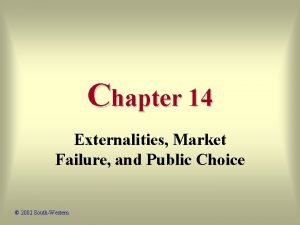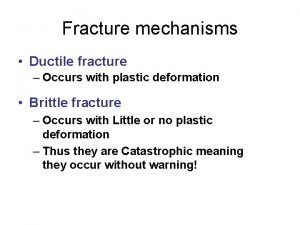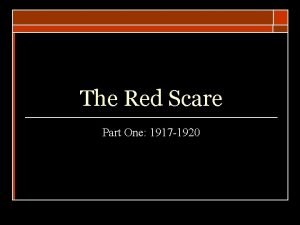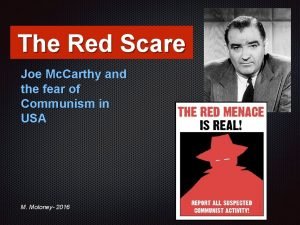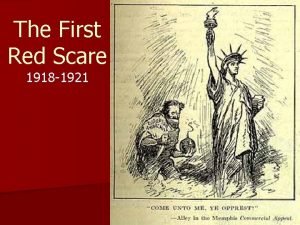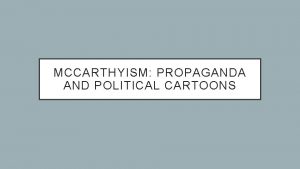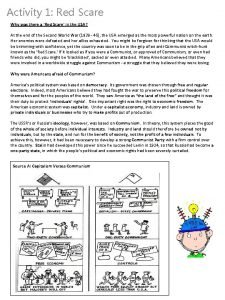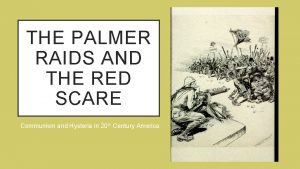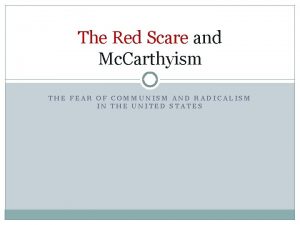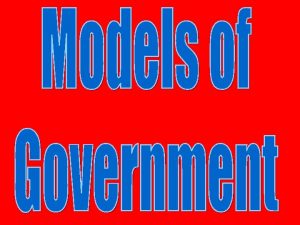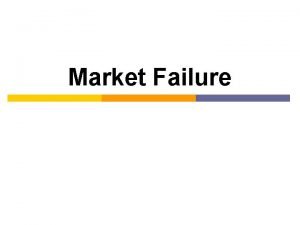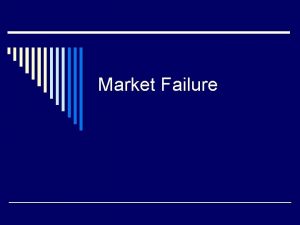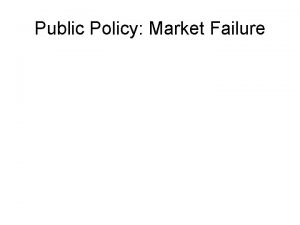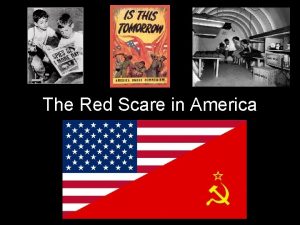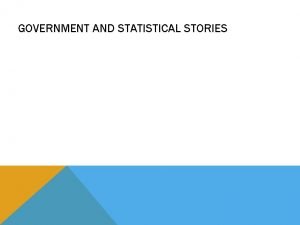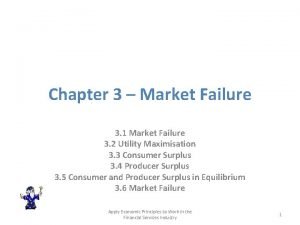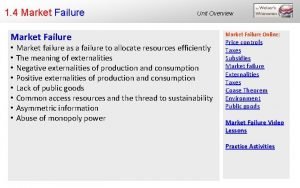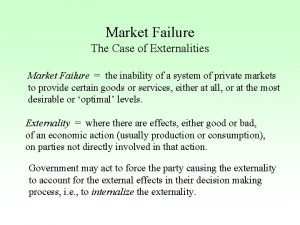Economic Scare Stories Market Failure Government Failure Previous





















- Slides: 21


Economic Scare Stories • Market Failure • Government Failure

Previous four lectures: overview of role of government in the economy • Normative analysis • The economic rationales (tests): Competitive markets work amazingly well – But sometimes there is market failure: externalities, public goods, and monopoly power. • Could you show this with deadweight loss charts and how about telling a story too? – And the income distribution may be too unequal with need for a social safety net

Sometimes the market results in too little production: monopoly power, positive externalities

Sometimes the market results in too much production: negative externalities

Now for the story. Let me tell you about William Swain • He was a young man who traveled from New York to California in 1849 – See map for the route • His goal: Find gold and go back home • Thousands just like him: the Forty-Niners – Much like an army – No “supply corps” but news, food, tools, entertainment was supplied • The invisible hand at work

The story goes on. Let me tell you about hydraulic mining • high pressure water from the Sierra mountains • break down the canyon walls to get more gold – caused huge damage to landscape – impeded navigation downstream • an externality thwarting the invisible hand

Use of Economic Models • Models of firms and consumers form the basis of the normative analysis • Now it is time to consider models of government – positive analysis (asks what governments actually do rather than what they should do) • Why bother with models of government? – Normative recommendations not followed – government failure is common too – it’s fun!

Public Choice Models • Basic assumption: Politicians and government workers are motivated by personal gain, just like anyone else • Politicians want to get elected and re-elected – Even Abraham Lincoln? • Government workers want to increase their power or prestige

Application to Voting • The easiest case: single issue with unanimity – Politicians will choose the unanimous view – If they don’t, they will not get elected • Next easiest case: Single issue with differences of opinion – Median voter theorem applies

Voting paradoxes • Condorcet’s voting paradox • More than one issue • Easiest illustration: three voters, three issues – look at example in table • endless cycles – Softer versus same: Softer wins – Same versus louder: Same wins – Softer versus louder: Louder wins • depends on which vote was taken last

Condorcet’s Voting Paradox

Arrow Impossibility Theorem • Named after Kenneth Arrow of Stanford • No voting scheme for 3 or more alternatives can satisfy all these reasonable properties – transitivity (if A beats B and B beats C, then A beats C) – unanimity (A beats B if everyone prefers A to B) – independence of irrelevant alternatives – Non-dictatorship

Another Application: Special Interests • Exert heavy political pressure in favor of some spending or tax program – Benefits concentrated on a few, costs diffuse – sugar quota example: • costs each consumer about $5 per year • each grower gets over $100, 000 per year • Rent seeking (wasteful lobbying): skilled lobbyists could do something more useful – Anne Krueger of Stanford has shown that this is a serious problem for developing economies

Yet another example: Regulators Captured by Industry • Railroads originally regulated as a natural monopoly • Competition from trucks and airplanes eliminated the natural monopoly • But as competition put pressure on prices, regulation continued and indeed expanded to trucking • Eventually the regulation ended • Could the same thing happen to cable TV?

Application of public choice models to Russian economic crisis • Privatization of industry without antitrust enforcement created monopolies • Monopolies now lobby for continuation of lax antitrust policy • Perhaps greater awareness of political problems would have led economic advisors to focus on competition before privatization

Time Inconsistency • Incentive for government to change policy • example of a dam on a flood plain – promise not to build – people move to flood plane anyway – government ends up building the dam – everyone could (and probably did) expect as much; – example of next midterm exam

International Trade Policy: A Preview • Trade policy (tariffs, quotas, etc) is an area with many examples of government failure • Why is international trade policy so prone to policy mistakes? – Sovereign governments can and do restrict trade with other countries – Compare with commerce clause of the U. S. constitution prohibiting trade restrictions between states in the United States

Less of a legal constraint on bad trade policy than on policy within the confines of the U. S. • Hence, economists (Adam Smith, David Ricardo, Anne Krueger) have made strong efforts to demonstrate – the harms of government intervention in trade – the gains from trade between countries • natural extensions of microeconomic theory • take it up in the next lecture – Chapter 18 of textbook


 Role of government in correcting market failure
Role of government in correcting market failure Example of negative externality
Example of negative externality Agile failure stories
Agile failure stories Ventricular escape rhythm
Ventricular escape rhythm Failure to sense
Failure to sense Example of ductile fracture
Example of ductile fracture Market leader follower challenger nicher
Market leader follower challenger nicher Positioning segmentation targeting
Positioning segmentation targeting Blacklisting apush
Blacklisting apush The red scare of 1919-1920 was provoked by
The red scare of 1919-1920 was provoked by Red scare dot activity
Red scare dot activity Red scare ww1
Red scare ww1 Red scare political cartoon
Red scare political cartoon Ashley drew scare tactics
Ashley drew scare tactics Krissy cross
Krissy cross Red scare activity
Red scare activity Whats the red scare
Whats the red scare We scare hunger poster
We scare hunger poster Red scare
Red scare What is the red scare
What is the red scare Carthyism
Carthyism Scar repairex
Scar repairex
